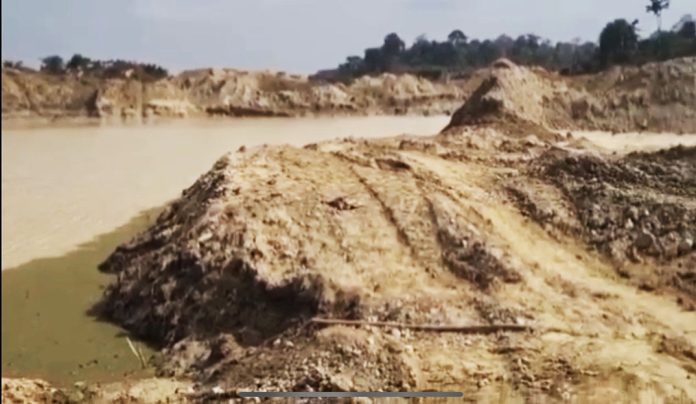
Contrary to widespread expectations that government might escalate its response to the menace of illegal mining, President John Dramani Mahama has indicated that there will be no immediate declaration of a state of emergency in the fight against galamsey.
Speaking during a stakeholder engagement on illegal mining in Accra, the President stressed that although the Constitution empowers him to declare a state of emergency, such a decision must be grounded in advice from the National Security Council (NSC). According to him, the Council currently believes that the ongoing battle against galamsey can be effectively prosecuted through existing legal, security, and institutional frameworks.
“Yes, I have the power to do it,” Mahama acknowledged. “But the president acts not only on his authority but also on the advice of the National Security Council. As of now, the National Security Council believes that we can win the fight against galamsey without a state of emergency.”
He, however, emphasized that the option remains on the table should the Council determine otherwise. “The day they advise me that now we need a state of emergency, I will not hesitate in declaring it,” the President affirmed.
Mounting Pressure for Tougher Action
President Mahama’s comments come against the backdrop of renewed pressure from civil society organisations, traditional leaders, and faith-based groups, who have consistently called on government to adopt tougher measures to halt the rapid environmental destruction caused by illegal mining.
Galamsey activities have devastated large swathes of arable land, contaminated rivers with mercury and other toxic substances, and destroyed vital forest ecosystems. Rivers such as the Pra, Offin, Ankobra, and Birim—once sources of clean drinking water and fishing livelihoods—have turned brown and heavily polluted, forcing the Ghana Water Company to shut down some treatment plants.
For many advocacy groups, the scale of destruction constitutes nothing less than a national security threat. They argue that degraded lands, poisoned rivers, and collapsing ecosystems are undermining food security, rural livelihoods, and the health of millions of Ghanaians.
Government’s Current Approach
While ruling out an emergency declaration for now, Mahama reiterated his administration’s full commitment to the galamsey fight. He explained that the government is prosecuting arrested illegal miners, both local and foreign, while inter-agency security operations continue to dismantle illegal mining networks across the country. In addition, efforts are underway to reclaim degraded lands and restore water bodies in affected mining communities. At the policy level, regulatory reforms are being introduced to strengthen the Minerals Commission and the Forestry Commission in their oversight roles, with the goal of ensuring more effective management of the country’s natural resources.
According to Mahama, these measures demonstrate that the government is determined not only to curb illegal mining but also to restore degraded lands and protect the rivers that sustain millions of livelihoods.
Balancing Caution with Urgency
The President’s cautious stance underscores the delicate balance between constitutional procedure and the urgent demand for environmental protection. On one hand, he must act within the advice of the National Security Council; on the other, the visible destruction caused by galamsey continues to fuel public frustration and calls for extraordinary measures.
Observers note that Mahama’s decision signals a preference for strengthening existing institutions and laws rather than bypassing them with emergency powers, but also leaves room for escalation if the situation worsens.
Stewardship at Stake
For many Ghanaians, the fight against galamsey has become a litmus test of the country’s environmental stewardship and political will. With Ghana committed to international frameworks such as the Sustainable Development Goals (SDGs), the Paris Agreement on Climate Change, and the REDD+ programme for forest conservation, campaigners argue that failure to decisively address illegal mining could undermine both domestic and global obligations.
“The rivers are dying, the forests are vanishing, and communities are suffering,” one civil society leader observed after the engagement. “If this is not an emergency, then what is? Whether through a state of emergency or not, government must show that it is serious about protecting Ghana’s natural heritage.”







